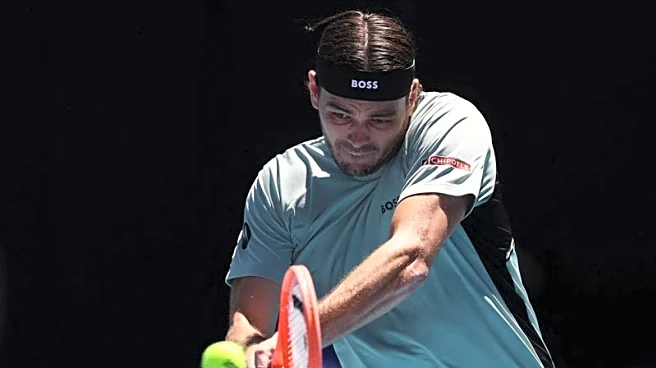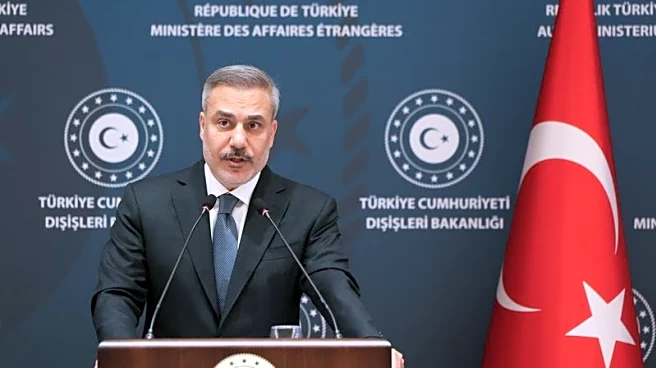What's Happening?
The Boston Red Sox are facing a challenging offseason as they consider whether to offer Alex Bregman a long-term contract. Bregman, a veteran infielder, opted out of his previous contract, which paid him an average of $40 million per year, seeking a multi-year
deal. The Red Sox had previously chosen Bregman over Rafael Devers, who was traded to the San Francisco Giants. According to Jim Bowden, the likelihood of Bregman remaining with the Red Sox is uncertain, as the team may not be willing to meet his market price. If Bregman does not return, rookie Marcelo Mayer could take over at third base, with Trevor Story remaining at shortstop. The Red Sox are also considering other options, such as pursuing Munetaka Murakami, who offers strong bat-to-ball skills and is younger than Bregman.
Why It's Important?
The decision regarding Alex Bregman's future is significant for the Red Sox as it impacts their infield strategy and financial commitments. Bregman's departure could lead to a shift in the team's defensive lineup, potentially allowing rookie Marcelo Mayer to step into a key role. The Red Sox's choice will also affect their budget allocation, as they may opt to invest in other players like Munetaka Murakami. This decision is crucial for maintaining competitive performance and avoiding liabilities at third base, especially after trading Rafael Devers. The outcome will influence the team's ability to balance veteran experience with emerging talent.
What's Next?
The Red Sox will continue to evaluate their options, weighing the benefits of retaining Bregman against the potential of investing in younger talent like Mayer or Murakami. The team's front office will need to make strategic decisions to ensure a strong defensive lineup while managing financial constraints. The resolution of Bregman's contract situation will likely impact other roster moves and the overall direction of the team's offseason strategy.
Beyond the Headlines
The Red Sox's decision on Bregman's contract could have broader implications for their long-term planning and player development strategy. Choosing to invest in younger players may signal a shift towards building a more sustainable and cost-effective team. Additionally, the handling of Bregman's situation may reflect the team's approach to balancing star power with emerging talent, influencing their reputation and future negotiations with players.















